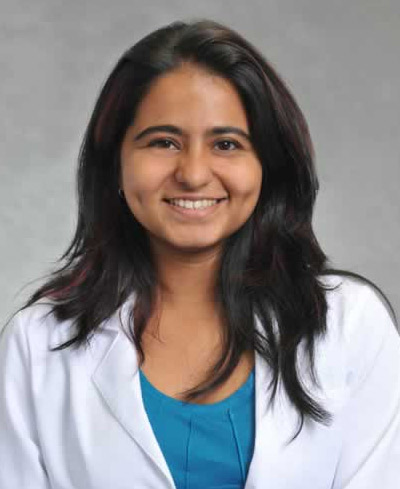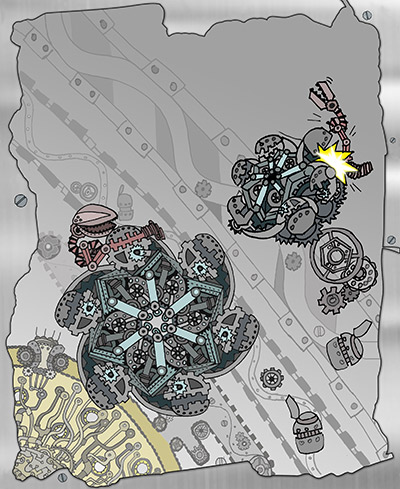Maya Rao, PhD, Publishes Article in Journal of Biological Chemistry
February 21, 2018
 Maya Rao, PhD, who was first author for an article that appeared in the November 2017 issue of Journal of Biological Chemistry
Maya Rao, PhD, who was first author for an article that appeared in the November 2017 issue of Journal of Biological Chemistry
Molecular & Cell Biology & Genetics PhD Maya Rao recently published her first article as a lead author. The article, titled "Interaction between the AAA+ ATPase p97 and its cofactor ataxin3 in health and disease: Nucleotide-induced conformational changes regulate cofactor binding," appeared in the November issue of Journal of Biological Chemistry.
Rao, who defended her dissertation in the fall, conducted her research in Dr. Patrick Loll's lab, where they investigate protein biochemistry. She researched two proteins that are implicated in neurodegenerative disorders, studying the basic way the proteins behave.
"I was looking at how the two proteins interact, how they come together, and how they fall apart the way they should in a normal human being," she explains. "We did some pretty cool stuff to quantify how the proteins bind together."
The research was conducted in vitro using surface plasmon resonance, electron microscopy and isothermal titration calorimetry.
 In addition to publishing her paper, the journal utilized Rao's artwork, shown here, as the cover for the issue.
In addition to publishing her paper, the journal utilized Rao's artwork, shown here, as the cover for the issue.
In addition to having her research published, Rao also had original art published. Her artistic representation of the cells as machines was selected to be the cover art for the issue.
Both of Rao's parents are artists, and though she enjoys creating art as a way to decompress, she knew from an early age that she was interested in science. Rao became interested in research in the 8th grade and specifically became interested in biochemistry while in undergrad. Before coming to Drexel, she completed a master's degree in biochemistry in India.
Because Rao wasn't sure exactly what she wanted to focus her research in, Drexel's Molecular & Cell Biology & Genetics program looked like a good fit. "It's an interdepartmental program that lets you rotate," says Rao.
"If you're going to do a PhD, you need to really find a good lab that you fit into, where you like the work and you like the environment, because it is going to be for many years of your life," she explains. "Drexel had everything I was looking for."